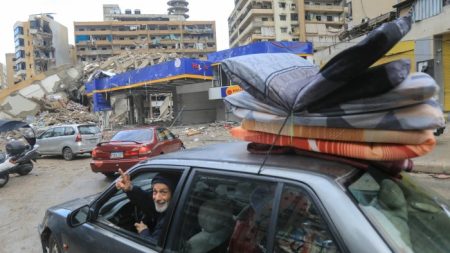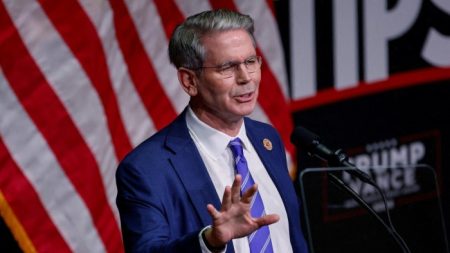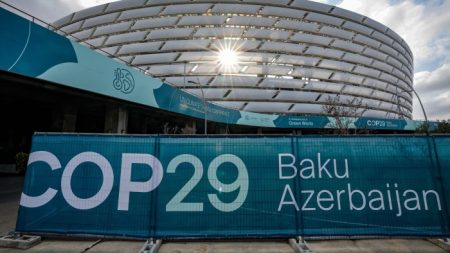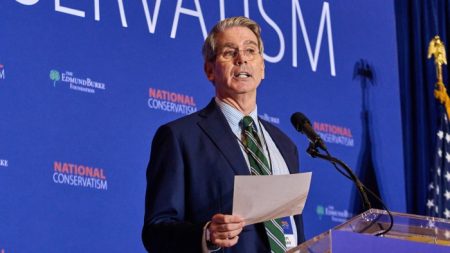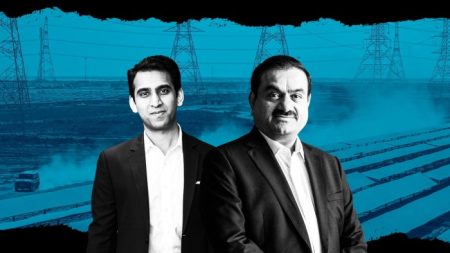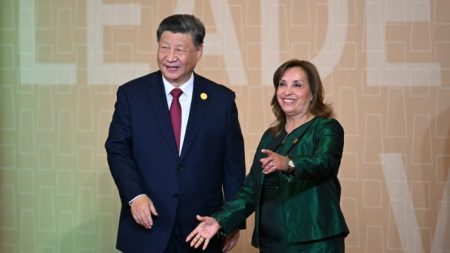From the shores of Lake Geneva to the holiday island of Bali, two events in recent weeks show the importance of Hashim Djojohadikusumo, a powerful tycoon and political fixer, to his brother Prabowo Subianto, the incoming Indonesian president.
In the affluent Swiss town of Anières, home to diplomats, bankers and the world’s rich, authorities in late April auctioned two luxury villas with the goal of recovering tax dues from Hashim after a decades-long fight to secure SFr131mn ($144mn) from the tycoon and his wife Anie.
The couple, who said in court they were divorced, argued that they could not pay up because they were insolvent, having spent hundreds of millions of dollars bailing out Prabowo’s business and funding his previous election campaigns. Swiss courts dismissed claims of insolvency and separation and approved a sale to recoup funds.
Hashim’s importance to his brother was on show last month in Bali, where the two men entertained Elon Musk for dinner. Indonesian ministers pressed Musk to consider establishing an electric vehicle factory there, underlining how the country’s development of its vast nickel reserves and incipient EV supply chain remain key to the success of the Prabowo presidency.
Prabowo takes office in October, but there is still widespread uncertainty about how he will govern. Hashim, 70, is the man Prabowo trusts most, according to four people close to both men, although it is not clear if he will get a formal position in the new administration.
“There is no one that Prabowo is going to trust more than his brother. He is going to be very central to the next administration,” said one of the four people.
The brothers belong to one of Indonesia’s best-known families. Hashim — once among Indonesia’s richest men — has been closely involved in Prabowo’s three presidential runs, acting as a spokesperson and adviser.
“He is one of Prabowo’s closest advisers and also somebody whom Prabowo listens to,” said Kevin O’Rourke, a political analyst at Reformasi Information Services, a consultancy. The Swiss court case raised questions about the Prabowo administration, given the influential role that Hashim was set to play and the “extraordinary strategy” used by Hashim to fight the tax dues, he said.
A second person close to the family described Prabowo’s upcoming presidency as a “family enterprise” with the younger Hashim playing a pivotal role.
Some companies and individuals eager to work with Prabowo have met Hashim as a first step, one diplomat said. When there were concerns over Prabowo’s divisive and nationalist rhetoric in his first two presidential runs, Hashim met business groups to ease their concerns, according to a person familiar with the meetings.
The Djojohadikusumo family has enjoyed an influential position in Indonesia’s modern history. Prabowo and Hashim’s grandfather played a significant role in Indonesia’s independence movement, while their father served in the cabinet of two presidents, including the late dictator Suharto.
Under Suharto’s regime, the brothers’ stature grew. Hashim was a much sought-after businessman in the 1990s whose holdings included banks, power plants, petrochemicals, energy, cement manufacturing and palm oil plantations.
Prabowo served in the Indonesian military for decades, mostly in the special forces, and was once married to Suharto’s daughter. In the 1990s, he was accused of kidnapping pro-democracy activists — allegations which led to his ousting from the military in 1998. Several of the activists remain missing.
Prabowo has denied any involvement, but he was barred from entering the US until his appointment as defence minister in 2019.

After the downfall of Suharto, both men’s fortunes turned — albeit briefly. Prabowo went into exile in Jordan. Hashim, whose businesses took a hit from the Asian financial crisis, moved to Geneva in the late 1990s with Anie, according to Swiss court documents.
The Geneva tax office began an assessment inquiry in 2003.
The couple argued in court that they could not pay back taxes owed because they were insolvent after financing the parliamentary campaigns of two of their children, Prabowo and Indonesian president Joko Widodo between 2009 and 2014, according to court documents.
Hashim also said he had spent $420mn to bail out his brother’s company, citing the expense as one of the reasons for his alleged insolvency and inability to pay the tax due. A Swiss court said the spending had not been proven.
The court records do not identify Prabowo’s company, but Indonesian media reported in 2019 that Kertas Nusantara, a company owned by Prabowo and his brother, had been facing financial difficulties for several years. Hashim and his wife also claimed in court that their financial situation had deteriorated in the wake of the 2008 financial crisis.
A court in 2020 held that the couple had failed to prove their repeated claims of insolvency, citing his ranking as one of Indonesia’s richest people on the Forbes list as being in “total contradiction with their allegations” of financial ruin. Forbes put his net worth at $685mn that year, with an earlier sale of a Kazakh oilfield to China’s Citic Group for $1.9bn boosting his wealth. Hashim’s business interests in mining, agriculture and commodities are now grouped under his company Arsari.
Despite their divorce in 2019, a court noted numerous photographs of them together on the internet, including from wedding anniversary celebrations in January 2020. A court held that the couple’s “aim in divorcing could not have had any other objective than to get out of their obligation to pay the tax balances due”.
A final appeal in the Federal Supreme Court in December 2023 failed, paving the way for Geneva authorities to proceed with the sale of their properties. As of April 2024, the couple was jointly liable for SFr131.2mn, a mix of tax arrears and fines accumulated over the previous 20 years, according to a document published along with the auction notice on the official website of the Canton of Geneva.
The canton put the villas up for sale this year. A February auction notice described a six-room villa with a wine cellar and a library and a nine-room villa built in the 1940s. The two villas were sold for SFr12.3mn in the April auction — a fraction of the sums owed. Asked if it would pursue Hashim for the remaining money, the canton of Geneva declined to comment.
While Swiss verdicts are anonymised, details provided in the court documents match the couple’s description. The auction notice identifies “Anie Toeridho (formerly Djojohadikusumo)” as the owner of the two villas. A spokesperson for the Geneva tax administration office said it could not comment on individual taxpayers. The Geneva judiciary and the Federal Tax Administration also declined to comment.
Hashim and Anie did not respond to requests for comment sent through their lawyer in Geneva and his company, Arsari, in Jakarta. Prabowo and Widodo’s spokespeople did not respond to a request for comment.
Meanwhile in Indonesia, the legal battles appear to have had little impact on Hashim.
Hashim, who is on the advisory council of Prabowo’s party, met Singapore’s foreign minister Vivian Balakrishnan in April when the latter visited Jakarta on an official trip. He also recently inaugurated the construction of a $25mn tin factory by a unit of Arsari. At Prabowo’s inauguration on October 20 in the new capital of Nusantara, Hashim is expected to be at his side.
Additional reporting by Diana Mariska in Jakarta
Read the full article here




